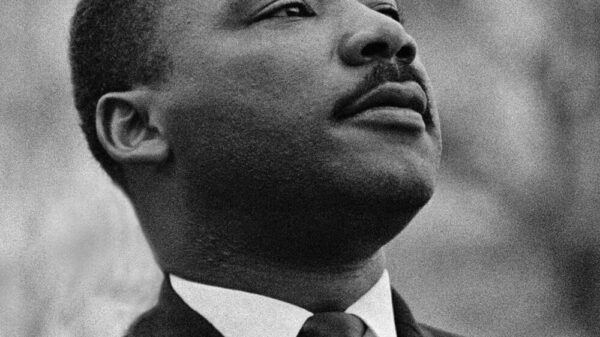By Dr. Julianne Malveaux
Martin Luther King Jr. addresses a crowd from the steps of the Lincoln Memorial where he delivered his famous, “I Have a Dream,” speech during the Aug. 28, 1963, march on Washington, D.C.
It took 15 years, hundreds of protests, a song and a tour to make Dr. King’s birthday a holiday, and Stevie Wonder’s lyrics, first debuted in his 1980 album “Hotter Than July,” encouraged activists to keep pushing for the holiday after being repeatedly rebuffed.
The Conyers legislation passed the House of Representatives 338-90 with much opposition from conservative white Southerners (primarily Republicans) speciously claiming that the holiday cost too much money.
On the Senate side, the legislation, sponsored by Sen. Ed Brooke (R-Mass.), passed 78-22. The process was far from smooth, though. Then-North Carolina Sen. Jesse Helms, a Republican, passed out binders full of scurrilous lies about Dr. King, describing him as a communist and worse. Sen. Daniel Patrick Moynihan was so out-raged that he described the information as “filth” and physically stomped on it.
Still, then-President Ronald Reagan signed the legislation in It has been 40 years since the bill was passed, and we ought to celebrate.
This legislation was only passed because of Black people’s resilience and persistence. These might be metaphoric for the struggle we must continue to wage.
One of the ways we continue to struggle is to ensure that everyone who sings “the Black Birthday song” realizes that the song is a tribute to Dr. King and was part of the struggle that was waged to make his birthday a national holiday. Many states refused to embrace the national King holiday.
Indeed, it was not until 2000, 17 years after the federal legislation passed, that all 50 states had some form of a King holiday. Arizona was the last, and they paid for their resistance.
The National Football League moved the 1995 Super Bowl from Phoenix to Los Angeles when Arizona refused to recognize the holiday. Several, including Rev. Jesse Jackson, boycotted the state and canceled events scheduled there.
Even today, several Southern states, including Alabama and Mississippi, attempt to weaken the meaning of the King holiday by naming it the King-Lee holiday, forcing those who celebrate the King holiday to also implicitly recognize the Confederate traitor, Jefferson Davis.
Utah described Jan. 15 as Human Rights Day rather than Dr. King’s birthday. It was not until 2000 that Utah became one of the last states to make Dr. King’s birthday a state holiday.
Why the resistance? Ignorance, arrogance, Caucasity, and racial hatred. And before anyone suggests that Caucasity isn’t a word that appears in Webster’s dictionary, you don’t need a dictionary to know that Caucasity is the racist behavior of some Caucasians.
In addition to attempting to chip away at the King’s legacy with their resistance to racial justice, Virginia had the audacity to couple the King birthday with those of Jefferson Davis AND Stonewall Jackson, another Confederate traitor. And Mississippi officially celebrates Confederate Heritage Month in April.
Other states recognize the month, but there is no official celebration, although four states celebrate Confederate Memorial Day at the end of April or early May.
Confederates and their descendants spend lots of time and energy propagating lies. They persistently believe they won the Civil War, although an honest history says otherwise.
They continue to chip away at the civil rights legacy, not just with words and Confederate holidays, but with the voter suppression that taints too many of our elections.
The response to the fiction they continue to spin is our resilience and persistence in the face of their warped fantasies.
We must continue to sing the “Black Birthday Song” joyously because joy is a form of resistance. But we must sign it in its historical context. Whether we are singing for Big Mama or a newborn baby, we must never sing Stevie Wonder’s “Happy Birthday” without thinking about speaking about Dr. King. The song is a tribute to our resilience and our history.
Thank you, Stevie Wonder, John Conyers, Edward Bush, Coretta Scott King, Rev. Jesse Jackson, Dr. Dorothy I. Height and many other activists for persistence in making Dr. King’s birthday a holiday and for gifting us with the Black birthday song, a constant reminder of Dr. King’s sacrifice and contribution.
Malveaux is an economist, author and dean of the College of Ethnic Studies at California State University, Los Angeles.









You must be logged in to post a comment Login